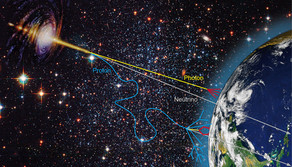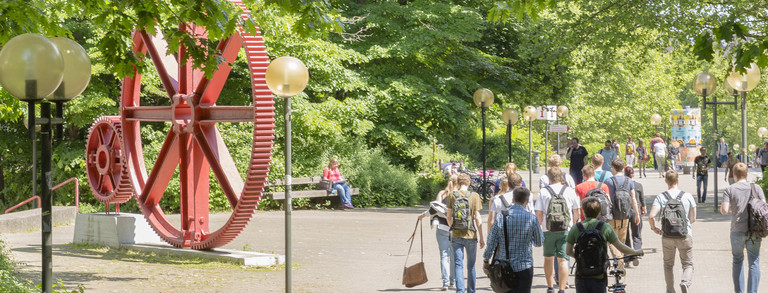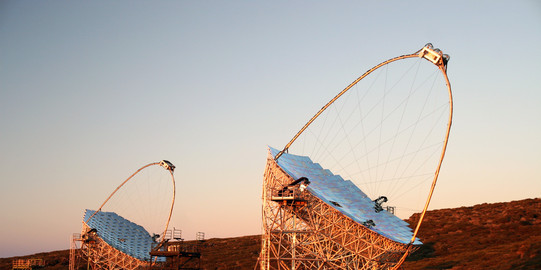
Gamma-ray Astronomy
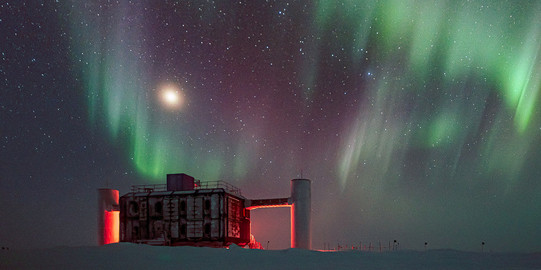
Neutrino Astronomy

Method Development
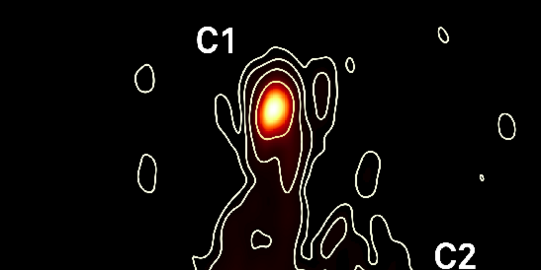
Radio Astronomy
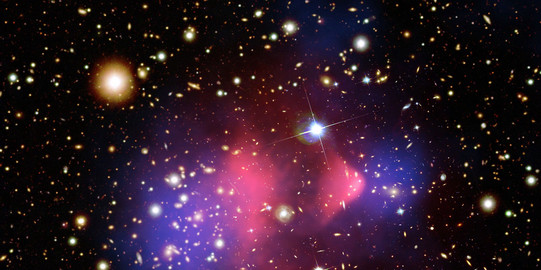
Dark Matter
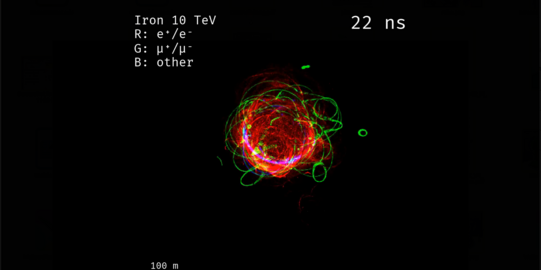
Particle Interaction and Propagation
Here you will find information about the research and teaching activities of the working group.
Under the direction of Prof. Dr. Dr. Rhode and PD Dr. Dominik Elsässer, we work on a wide field of different questions.
Messenger particles (neutrinos, gammas, electrons and charged atomic nuclei) from astrophysical sources (stars, galaxies and others) reach Earth in an energy range that extends over many orders of magnitude. With optical and radio astronomical observations, these objects can be observed with high resolution. The messenger particles are detected by very different types of telescopes and detectors at different locations on Earth. We are involved in several gamma-ray telescopes (CTA/LST, MAGIC, FACT) as well as the neutrino telescope IceCube and have access to radio astronomy data within the GLOW consortium.
Our astrophysical focus is on the precise determination of the directional and energy dependence of the fluxes of messenger particles, in order to eventually gather as much information as possible about individual sources and thus find an answer to the question of the origins of cosmic rays (Multi-messenger astronomy).
To be able to test whether our measurements agree with certain ideas about the sources, we have to calculate phenomenological models of the sources in theory.
Very large amounts of data are recorded from the experiments we are involved in, but only a small part of it is physically interesting. The unwanted background is often many orders of magnitude more abundant than the signal. Many interesting signatures are so rare that the detectors are designed with very large sensitive volumes. These detectors are correspondingly sparse with sensors. This is another reason why the identification, the direction reconstruction and the energy reconstruction of the messenger particles are highly complex tasks for data analysis. We have therefore developed leading methods of machine learning and artificial intelligence in close cooperation with computer science and statistics for twelve years in the Collaborative Research Centre 876 "Data Analysis under Resource Constraints" and are continuing this work in cooperation with the LAMARR Institute.
In order to be able to train the methods of machine learning, one needs highly precise simulation programs that can calculate as many realistic examples of measurements as possible in minimal amount of time. Therefore, we deal with the creation and optimization of Monet Carlo algorithms.
Both simulation and data analysis require considerable resources, e.g. in CPU time, memory, data transfer rates and energy. We are working to minimize these resources by using machine learning methods, and in many applications we have succeeded in achieving significant reductions here as a contribution to green computing.
The precision of these simulations naturally depends on the accuracy with which particle-physical interactions are calculated in theory. We are therefore working both on improving relevant calculations of effective cross sections and on measuring particle interactions at energies and kinematic conditions that cannot be achieved in accelerator experiments.

![[Translate to English:] [Translate to English:]](/storages/app-physik/_processed_/3/a/csm_APPGroupphoto2023_001_small_858e4405eb.jpg)

